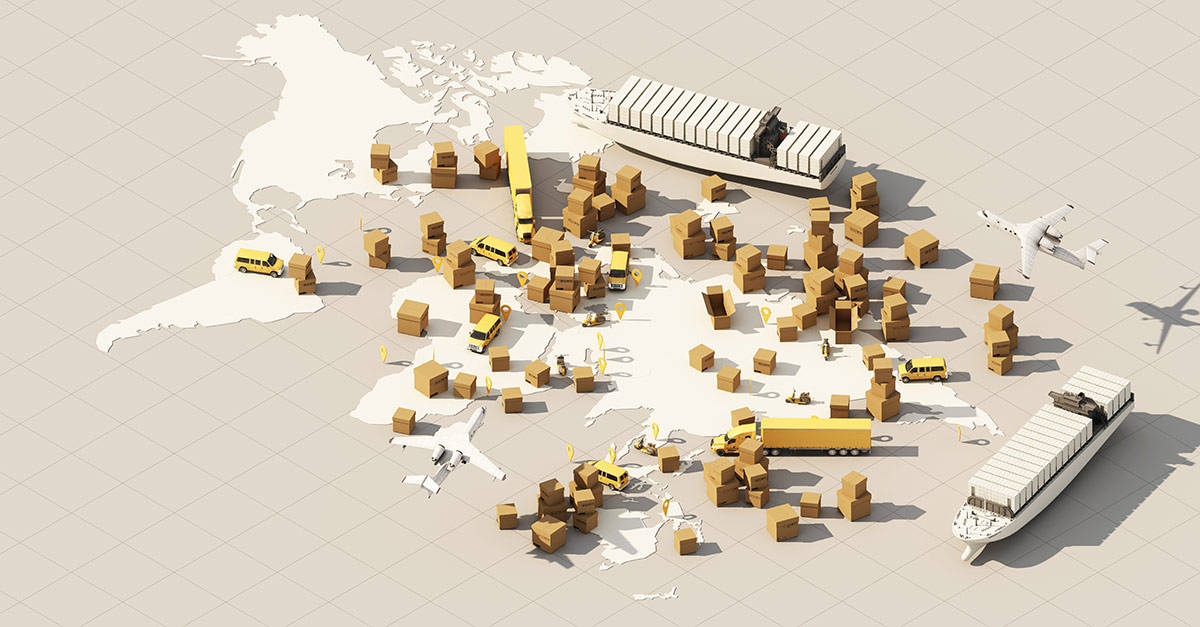
How can Order Management Systems help retailers go international?
In a hyperconnected world, retail is no longer confined by geographical boundaries. E-commerce platforms and marketplaces have transformed the way consumers shop, making it easier for businesses to reach an international audience. However, expanding into new markets comes with its own set of challenges, particularly in managing orders efficiently across borders. That’s where a robust Order Management System (OMS) can make all the difference.
The challenges omnichannel retailers meet when going international
- Inventory management: One of the foremost challenges in international retail is managing inventory across different countries and regions. Each location may have distinct demand patterns, seasonal variations and logistical constraints. Omnichannel retailers know the importance of maintaining consistent and synchronised operations across all markets and channels, and an OMS can intelligently monitor and optimise inventory and orders to deliver a unified customer experience globally.
- Logistics management: Shipping costs and logistics can be significantly different when expanding internationally. A sophisticated Order Management System like OneStock employs intelligent algorithms to ensure orders are routed to the nearest and most cost-effective fulfilment location, resulting in lower shipping costs, shorter delivery times, and a more efficient international supply chain.
- Local regulations: International expansion brings a complex web of shipping regulations, taxes and customs duties. To help omnichannel retailers navigate these intricacies, advanced technologies like an OMS can automate compliance tasks, such as calculating taxes and handling customs documentation, making cross-border order fulfilment more streamlined and error-free.
- Pricing management: Managing multiple currencies and pricing structures is another headache for international retailers. Different countries often require localised pricing to stay competitive. Here, an OMS can help manage currency conversions, display prices in local denominations and provide real-time exchange rate updates, ensuring a seamless and localised shopping experience for international customers.
- Scalability: International expansion means dealing with increased complexity, including additional stores, inventory and customer demands. An OMS that can scale alongisde a business is critical for managing this complexity effectively. Choosing a robust, cloud-native solution like OneStock ensures retailers can benefit from technology advancements and confidently expand their global operations.
Why is an OMS a strategic priority when it comes to international trade?
The potential rewards of international expansion are substantial. Retailers can tap into larger customer bases, access new revenue streams and diversify their market presence to mitigate risks associated with localised economic downturns. However, expanding internationally is a multifaceted endeavor and success requires a strategic approach. With an Order Management System (OMS) retailers can venture into international markets, and thrive.
Here are some benefits of the solution:
- Unified commerce across borders: An OMS provides retailers with real-time visibility into their inventory across all locations, including warehouses, physical stores and third-party suppliers. This visibility is essential for managing product availability, ensuring that customers can find the items they want no matter where they are in the world. With an OMS, orders from various sales channels are seamlessly integrated and processed through a centralised system. This means that whether a customer places an order on the retailer’s website, a mobile app, or in a physical store, the order is handled efficiently and consistently.
- Cross-border shipping and logistics: An OMS can integrate with multiple shipping carriers, allowing retailers to choose the most cost-effective and reliable options for each international shipment by considering factors like shipping distance, customs processing times and local holidays. This ensures that customers receive their orders in a timely manner, enhancing satisfaction and reducing the likelihood of cart abandonment.
- Currency and payment handling: Currency conversion and international payment processing can be stumbling blocks for retailers expanding globally. An Order Management System can handle transactions in multiple currencies, simplifying the shopping experience for international customers. Prices can be displayed in the customer’s preferred currency, and exchange rates are automatically updated to reflect current market rates. Moreover, thanks to its integration with various payment gateways and methods, retailers can offer customers familiar payment options and ensure secure transactions, regardless of their location.
- Data-driven insights: An OMS generates a wealth of data related to sales, inventory and stock location performances. This data is valuable for making informed decisions about international expansion. Retailers can then use OMS data to assess the performance of different regions, identify growth opportunities and determine where they should focus their international efforts.
The path to international expansion for omnichannel retailers is fraught with challenges, from managing inventory and localising customer experiences to navigating complex shipping regulations. OneStock’s OMS is a powerful tool that can help omnichannel retailers overcome these challenges, enabling them to successfully expand into new markets while maintaining a seamless and customer-centric approach.


